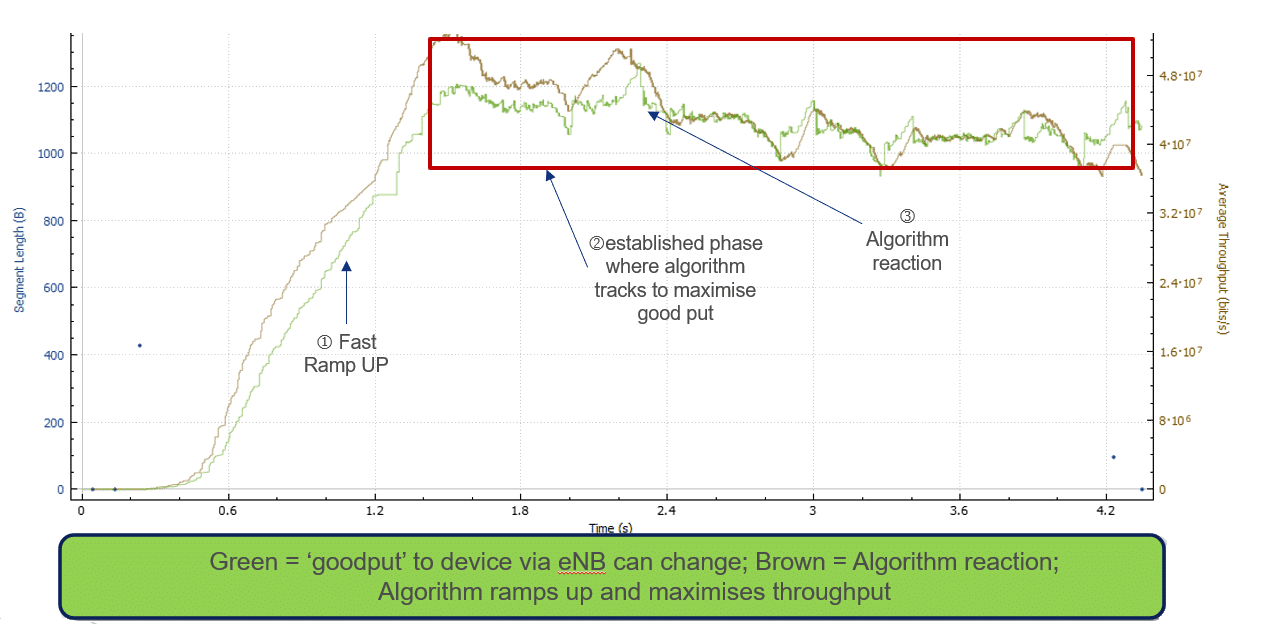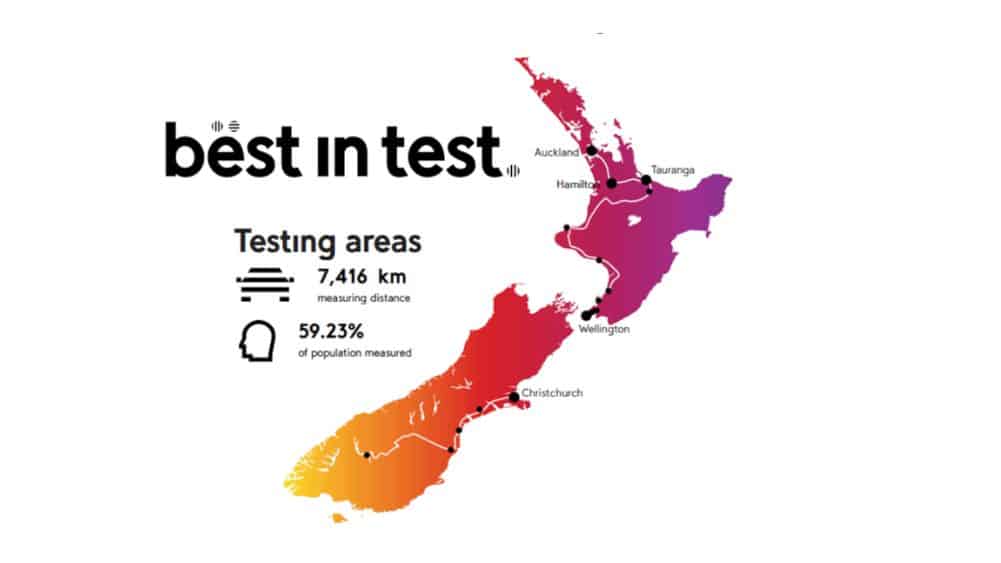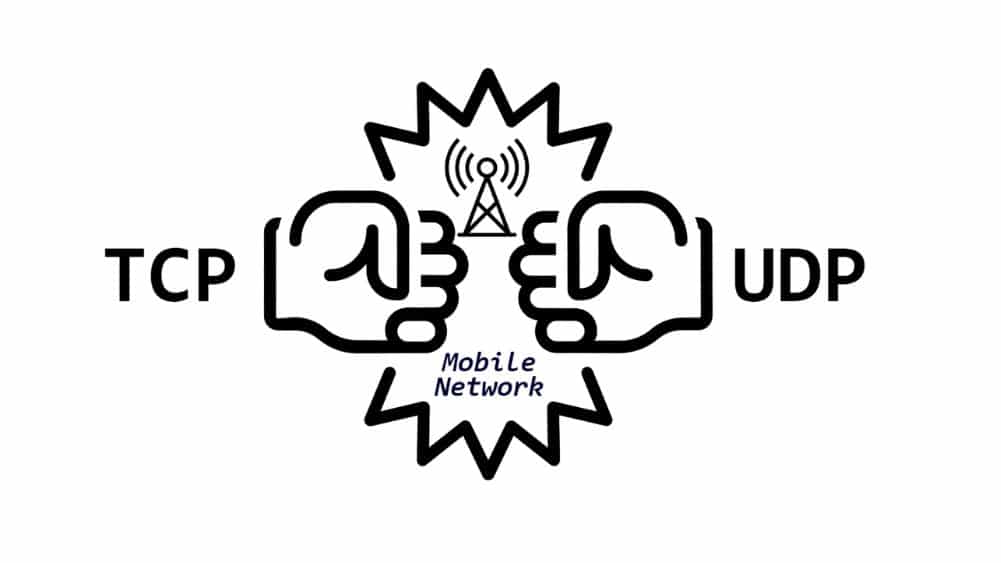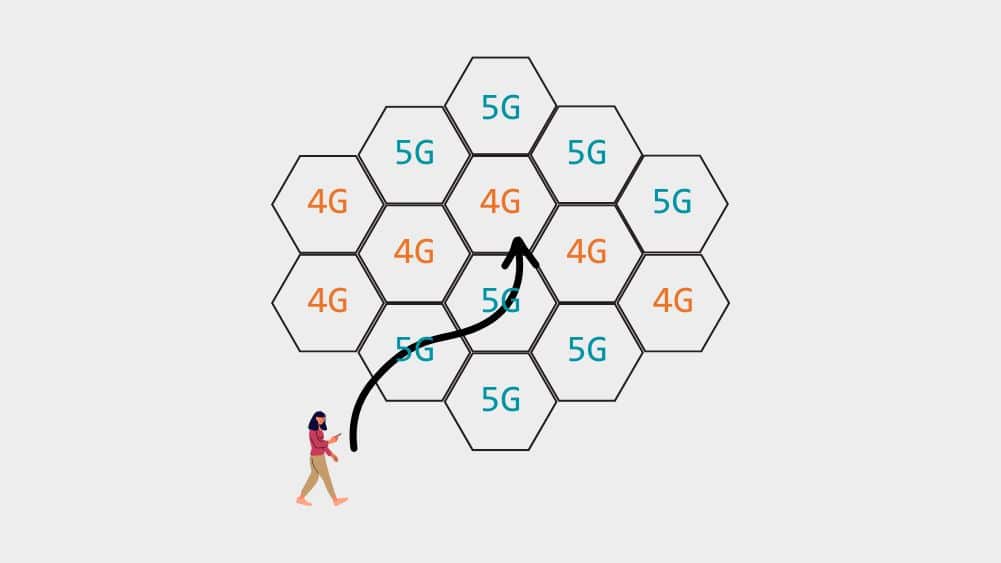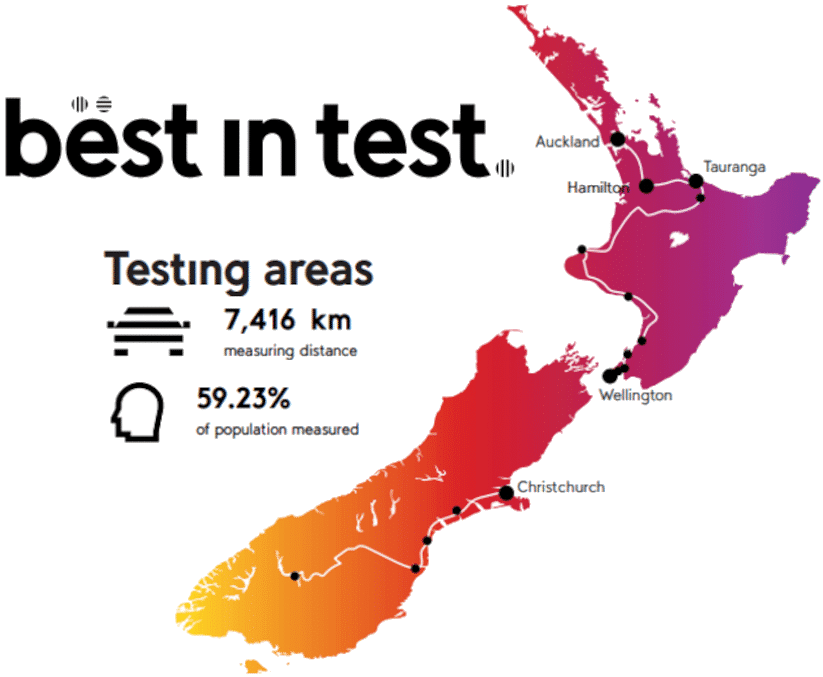Accelerate the Mobile Experience Across 5G & 4G with Enea TCP Accelerator
Deliver a faster, smoother, and more responsive mobile Internet experience with Enea TCP Accelerator – a powerful, clientless software solution that enhances TCP performance across 5G and 4G mobile networks. By intelligently accelerating and optimizing TCP—the protocol responsible for over half of mobile data traffic—Enea helps mobile network operators (MNOs) deliver superior user experiences, maximize infrastructure efficiency, and defer costly network investments.
Why TCP Acceleration Matters in Mobile Networks
TCP (Transmission Control Protocol) was not originally built for the dynamic conditions of mobile networks. Even small amounts of packet loss or latency variation can lead to sluggish web page loads, slow file downloads, and disrupted streaming—causing user frustration and churn.
Enea TCP Accelerator addresses these challenges by optimizing and accelerating TCP sessions across both 4G and 5G networks. It compresses and caches popular content closer to the user, adapts to varying radio conditions, and intelligently tunes congestion control behavior—making the mobile data experience faster and more reliable.
Unlock 25%+ Performance Increases
In a world focused on marginal gains, Enea offers a game-changing performance boost. Whether you’re building for 5G, fixed wireless access, IoT, or smartphones, Enea’s transport-layer intelligence ensures that your data path is as optimized as your radio access. With TCP Acceleration, mobile network operators can:
- Achieve 10–25% faster content delivery.
- Reduce video buffering and startup times.
- Gain up to 25% more streaming capacity through optimized delivery.
- Outperform competitors in third-party speed and QoE testing.
Key Benefits of Enea TCP Accelerator
Faster Web & App Performance
Enea’s TCP Accelerator improves subscriber throughput by up to 30% and reduces page loading times by up to 25%. With quicker session ramp-up and fewer retransmissions, users enjoy faster access to content and smoother app experiences—even in congested or fluctuating network conditions.
Improved QoE, Rankings, and Revenue
An enhanced Quality of Experience (QoE) directly influences customer satisfaction, retention, and network ranking in third-party benchmarks. Enea helps operators improve their competitive position and increase ARPU by delivering a better, faster mobile internet experience.
Smart Adaptation in Real Time
TCP Acceleration automatically adapts to changes in Radio Access Technology (RAT)—like switching between 4G and 5G—by continuously probing network conditions such as round-trip time and packet loss. This ensures that available bandwidth is always used efficiently without overwhelming the network.
Maximize Existing Network Investments
By accelerating TCP sessions and reducing session durations, network resources are freed up faster, increasing overall efficiency. This allows operators to support more users on the same infrastructure and delay expensive RAN expansion projects.
Optimized Delivery of All TCP Traffic – Including HTTPS
Enea accelerates all TCP traffic, including encrypted HTTPS sessions, and applies advanced image optimization to reduce file delivery times without affecting resolution or visual quality—perfect for today’s content-heavy applications.
Proven Performance in Real-World Results
Time to Peak Throughput
- Without TCP Acceleration: 2.8 seconds to reach 90 Mbps.
- With TCP Acceleration: Just 1.2 seconds to reach 90 Mbps, and 105 Mbps achieved by 2.8 seconds.
Faster ramp-up directly improves user experience for browsing, streaming, and file downloads. See more how to be best in test and become the Nr 1 Mobile Data Network.
Throughput Gains on File Downloads
Enea TCP Accelerator improves data transfer speeds and session efficiency. In a 100 MB file transfer test:
- TCP Acceleration OFF: Throughput ranged between 175 Mbps and 195 Mbps.
- TCP Acceleration ON: Consistently achieved throughput above 195 Mbps.
Use case: Driving #1 Network Performance
Enea’s traffic management and TCP Acceleration capabilities have helped operators achieve top rankings in third-party testing. Whether the goal is to win market leadership or simply improve user satisfaction, TCP Acceleration gives operators the competitive edge. In Drive Test scenarios, where users move between network zones:
- TCP sessions ramp up 3x faster with Enea’s optimization.
- Network throughput remains more stable, even across coverage changes.
- Operators see 15–25% improvements in key KPIs during benchmark assessments.
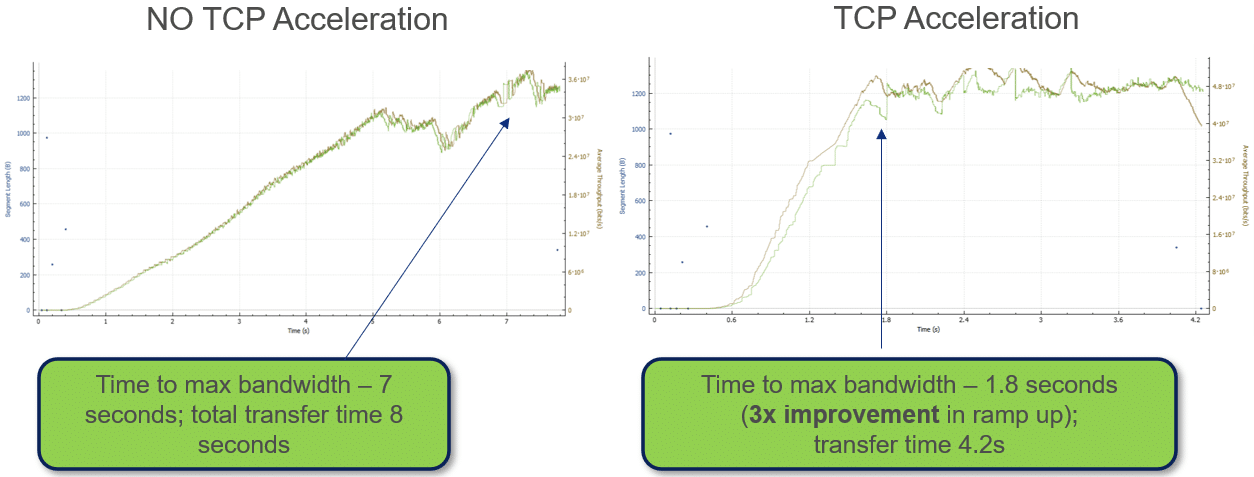
Use case: Handling Mixed 5G & 4G Coverage
TCP Acceleration always ensures the available physical bandwidth is at max utilization; as a user transitions between 4G, 5G & 5G NR environments the available bandwidth varies significantly – so the longer phase of an established connection Enea TCP acceleration is probing for network changes – so that the connection can either ramp UP to the new 5G bandwidth or ramp DOWN to 4G Radio. This reduces packet loss (in the ramp down scenario) and always ensures the subscriber is getting maximum network speed with smooth transitions :
Smarter Congestion Control
Enea’s TCP Accelerator is built on a next-generation Auto-Tuning Algorithm that reacts more effectively to congestion than static or hybrid approaches. It dynamically adjusts send rates based on real-time feedback from the network, avoiding excessive backoff while preserving reliability.
Key Enhancements
- TCP Startup Optimization: Quickly ramps up transmission rates to maximize bandwidth usage from the start of a session.
- Aggressive but Reliable Ramp-Down: Adapts more rapidly to changing bandwidth conditions or UDP interference, preserving session stability.
- Radio-Aware Probing: Automatically detects shifts between 4G/5G and adapts protocol behavior to optimize throughput based on the current radio environment.
- Continuous Bandwidth Tracking: Ensures TCP maintains its fair share in shared networks, especially where QUIC (UDP) is in use.
This results in 10–25% faster download speeds, improved video start times, and better consistency across varied coverage.
Flexible, Scalable Deployment Options
Enea TCP Accelerator solution is designed for performance and ease of integration across any network architecture. Operators gain the flexibility to tune performance while ensuring scalability and smooth upgrade paths.
- Deploy Enea TCP Accelerator on COTS x86/IA-64 hardware or as a Virtual Network Function (VNF).
- Minimize latency with Enea’s ultra-efficient packet processing engine.
- Use Enea’s Service Administration tools to configure acceleration aggressiveness, trigger mitigation policies, or react to control plane data.
Let’s Talk About Your Network Goals
Every mobile network is different. Let Enea show you how TCP Acceleration can:
- Improve subscriber experience
- Delay infrastructure upgrades
- Optimize encrypted traffic
- Help you win in competitive testing
Contact the Enea team today to discover how advanced transport optimization can help you deliver the best mobile experience possible.
Latest TCP Acceleration Insights
TCP Acceleration Frequently Asked Questions
TCP is transmission control protocol. It is a fundamental part of the internet – at layer 4 of the OSI stack – sitting above the Internet Protocols (aka IPv4 and IPv6); In other words it is not application content like web pages (HTML) or Video Streaming – rather it is a transport mechanism for that content. A metaphor would be railway freight cars – the freight car + track is transport without knowing/caring what is inside the freight car. In Mobile Telecoms TCP accounts for 50-55% of the transmitted traffic.
TCP is designed to be a reliable protocol, in other packets that are transmitted are verified as received; if no verification of receipt then the packets are retransmitted. In other words TCP relies on acknowledgment between sender and receiver of the content transmitted as well as the quantity of that content at any one time – at each stage of the many waypoints between your mobile device and the application server (and back again). TCP is labelled as a connection-orientated protocol.
UDP is a connectionless protocol that attempts to avoid retransmits at transport level. UDP is more of a per packet-based acknowledgment between sender and receiver. Many packets can be sent without acknowledgment and may go by different routes between mobile device and content server. UDP is labelled as a connectionless protocol.
The QUIC protocol (defined by IETF) has built rules on top of the UDP protocol to govern the transport of content. So it is not the same thing. The QUIC protocol is used primarily for video streaming but may be adopted by IETF as part of the move to HTTPv3. The mix of TCP and QUIC is described in the Enea insight article https://www.enea.com/insights/tcp-vs-udp-the-fight-for-space-on-a-shared-network/ove to HTTPv3.
TCP acceleration is the process of modifying the TCP transmission window (number of packets) to be more or less aggressive depending on the available physical bandwidth. In the initial phase (when first a peer to peer connection is made) also called ‘Slow Start’ the window size can be increased more for 4G & 5G networks. In 5G networks it can be increased more than 4G. This allows more data to be transmitted initially.
During the life of the connection the window and packets loss govern how much data can be transmitted reliably. In the case of 5G this can be a significant difference. However if it is too aggressive then a large number of lost packets is communicated (as the network can’t cope) which can cause a significant back-off / ramp down of available packets. The principle is to match the estimation of the physical bandwidth to number of packets (and size of packet) [window size] always ensuring the TCP connection is ‘Optimal’
TCP acceleration can decrease load time of web pages / files (enabling a mobile data supplier to be #1 network in a drive test) and also improve the customer’s network perception of speed. In respect of operations automatic TCP acceleration always ensures that the mobile network is transporting over half the data optimally – maximizing the use of available bandwidth.
Enea Network Traffic Management Portfolio
Trusted By

TCP Accelerator Datasheet
Next-gen acceleration to maximize the efficiency of transport layer
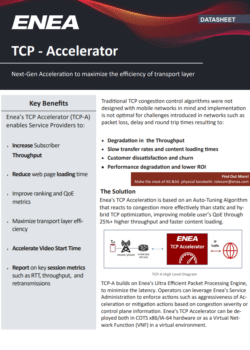
TCP vs UDP – Competing for Shared Bandwidth
While TCP ensures reliable delivery through acknowledgments and retransmissions, UDP (used in QUIC and streaming) is connectionless and aggressive—often monopolizing bandwidth. By improving how TCP handles startup, congestion, and radio transitions, operators regain control over shared resources and maintain a balanced, efficient transport layer. Read more on TCP vs UDP.
Enea’s TCP optimization reclaims fairness for TCP:
- Adapts more quickly than UDP-based apps to changing bandwidth
- Maintains high reliability and performance under network pressure
- Protects TCP-based apps from being starved of resources in mixed-protocol environments
Intelligent User Plane Optimization
As mobile data traffic grows at 20% CAGR, and with over 96% of it encrypted, operators can no longer rely solely on RAN upgrades. A smarter approach to the user plane—where data flows between device and internet—is essential.
A recent report from Omdia highlights the need for Intelligent User Plane Tools that:
- Enable deep packet inspection and session awareness
- Optimize encrypted traffic and manage session QoE
- Are deployable as standalone inline functions (e.g. Enea TCP Accelerator)
This approach offers CSPs greater agility, lower upgrade risk, and best-in-class performance without overloading UPF resources.
Use case for Enea TCP Accelerator
Contact Our Experts
Would you like to know more about Enea’s software solutions for Network Traffic Management? Interested in discovering how our features could improve your specific use cases? Contact us to arrange a meeting with our network performance experts!

